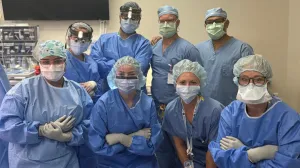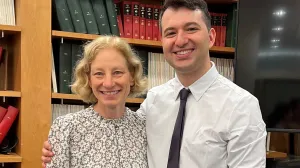
For the past 16 years, Paul Mathew, MD, Hematologist/Oncologist at Tufts Medical Center, has dedicated his career to unraveling the molecular mechanisms that drive prostate cancer. Now, in a recently published study, Dr. Mathew and his research team have introduced a novel bispecific antibody that targets two integrins—receptors that not only fuel the aggressiveness of prostate tumors but also help them hide from the immune system.
This innovative therapy reprograms prostate cancer cells, stripping them of their immune-evasive traits and making them vulnerable to natural immune responses. What makes this breakthrough especially promising is its potential application to other difficult-to-treat cancers, including breast, ovarian and pancreatic.
The research challenges long-held assumptions about “precision medicine” approaches to cancer treatment, which effectively ignore the tumor’s lethal hard-wiring controlled by integrins. If the safety and efficacy of bispecific integrin therapy is confirmed in future clinical trials, there is potential for this research to significantly change the way oncologists look at cancer biology and the treatment of cancer.

